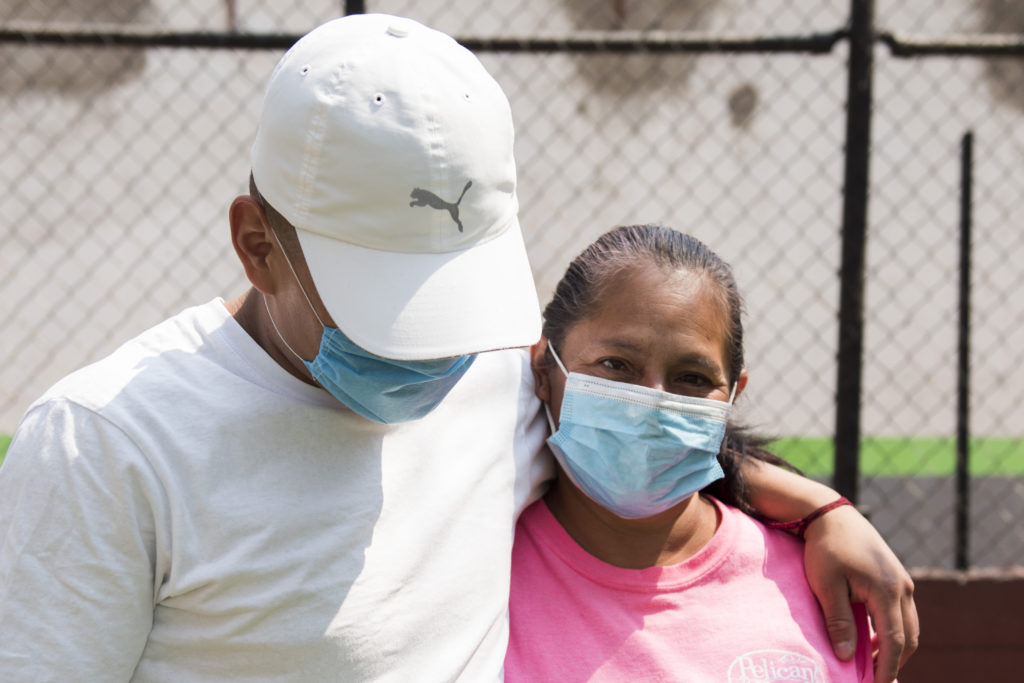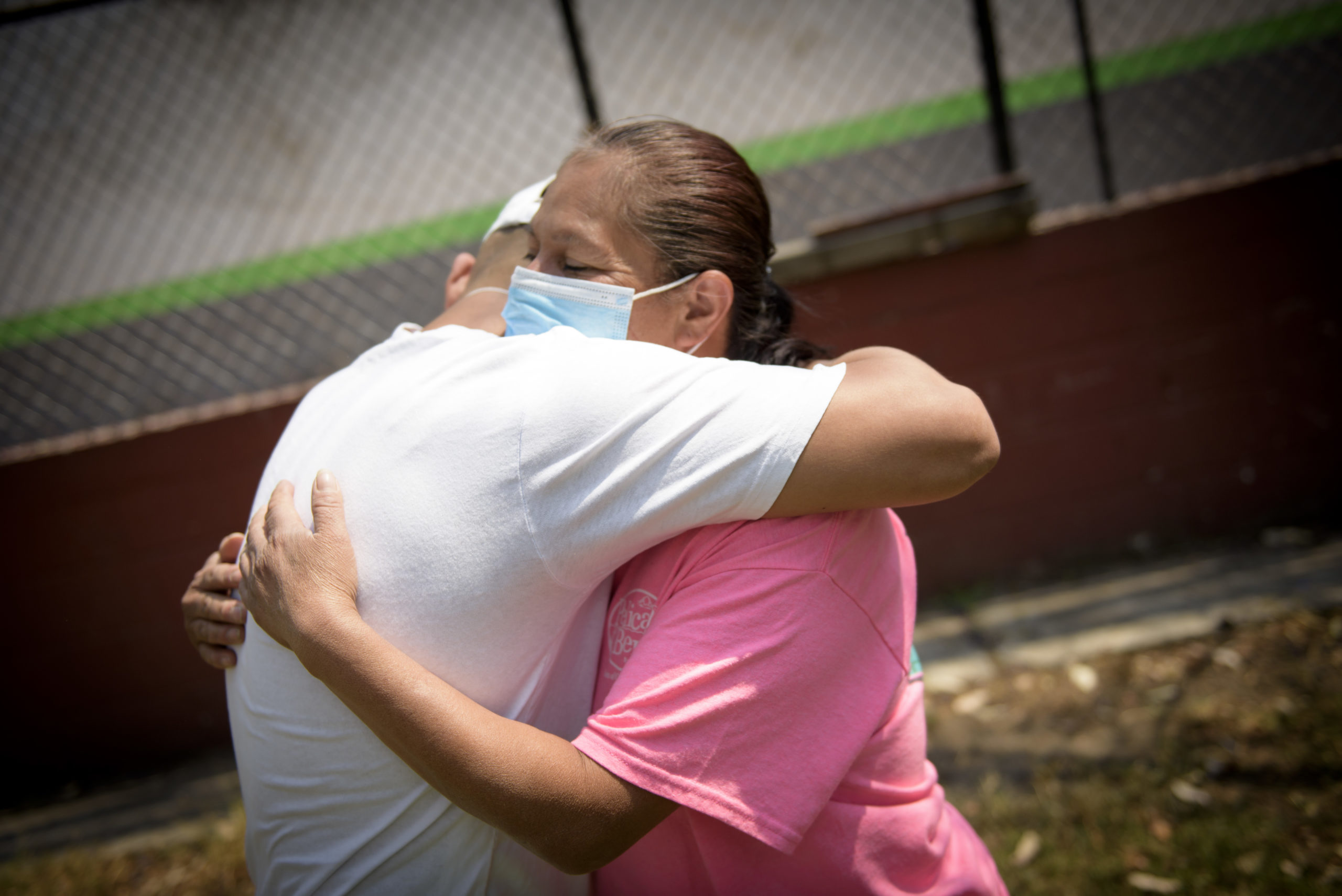Rocío gets up very early every morning to prepare for her two jobs. She cleans the houses of wealthy people, who sometimes give her clothes, purses, or shoes that they no longer use. Rocío sells these items in a street market to have an extra income.
She requires a double income because she needs to pay her household bills, put food on the table, and pay weekly fees at the adult prison where her oldest son is currently living. When she is done paying her debts, she does not have enough money left to visit her youngest son, who is in a detention center in Mexico City.
Although she also resides in the same city, she does not really have any excess money to cover public transport tickets. In the middle of a pandemic, it is also not prudent for her to use the public buses or the subway, because this means exposing herself to catching the new coronavirus, and she has had diabetes for some years. In fact, her eyes have already resented her illness and her meager income sometimes does not allow her to buy the medicine she needs.
Rocío misses her children every day, and she wishes to see them or talk with them. She understands that her boys are in detention because they committed an act against the law, but that does not separate the fact that, as a mother, it is always necessary for her to be close to her children, support them and comfort them.
Upon learning about Rocío’s situation, she was invited to participate in the first Family Reunification that we held in Mexico City. She was provided with private transportation to the detention center, where her youngest son is, as well as back to her home.
Through the Family Reunifications of the Mobilizing Volunteers project, we provide support to low-income families who cannot visit their children at the detention centers, by providing transportation, so they can get to spend some time with their children during visitation days. The parents are also handed a Personal Kit that they can give to their son or daughter during the visit, as means to support the tight income of each family.
Although Rocío had wanted to visit her son for a long time, the pandemic had not allowed her to do so, since the detention centers were closed to all kinds of visits for many months. Visiting permits have already been reinstated in Mexico City, so Rocío did not hesitate to accept the support we offered her.

We accompanied her during the visit to her child. She brought some scrambled eggs with ham, pickled chili peppers, bread, and a soda, to share with her boy. She went through all the safety and hygiene inspections, then she waited in a garden for her son to come out to see her. Her eyes lit up the moment she saw him. They both hugged each other tightly for a few seconds and then sat down to eat and talk, after many months of not doing so. They were mother and son, as they always have been, although this time they were behind bars.
It is extremely important to keep these families together. Families are an adolescent's first link with society, and they are of great help in attempting a positive reintegration of the adolescent, once their time in detention is over. When a family member is denied the possibility of contact with the adolescent, an even deeper divide is created between them, the juvenile justice system and society. The family member has no way of knowing if the adolescent is in good physical and mental health. The adolescent, in turn, may feel abandoned, hopeless, and reaffirm the belief that he or she is not part of a society that cares for them, thus generating a greater possibility of recidivism in crime when they lack the trust and understanding from society. At JJI we have the conviction that in order to generate a more tolerant, inclusive and safe society, we must maintain the relationship of the adolescent in conflict with the law and their family nucleus. Young people must have contact with their family, express their way of feeling and feel supported and understood. Help us provide assistance to more families with Family Reunifications, by making a donation that allows us to cover the transportation costs of more mothers and fathers throughout the country. Donate hope and well-being for these separated families today.

